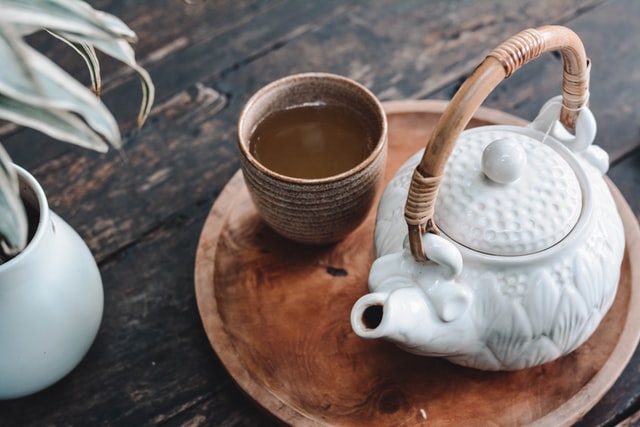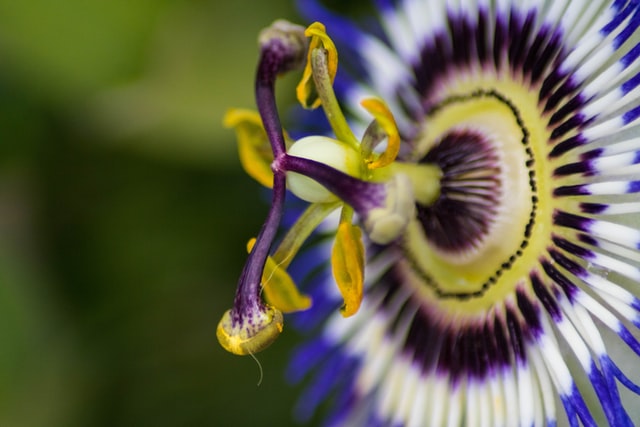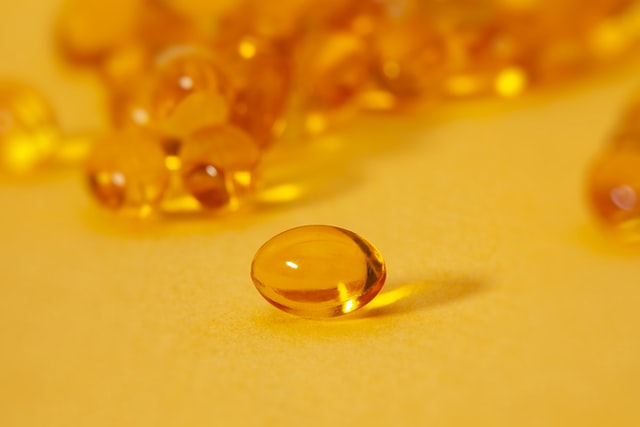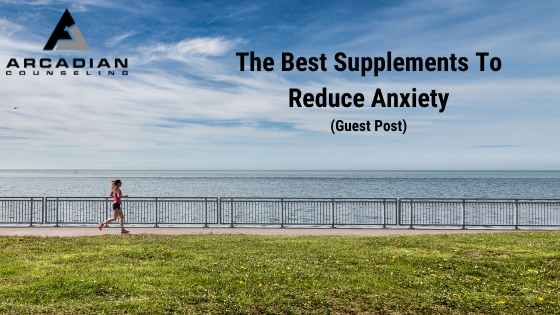Rapid heartbeat, chest pain, nervousness, trembling, and unable to concentrate on anything but the constant worry in your mind. If you’ve experienced these symptoms you may be struggling with anxiety. Regardless of whether you’ve had it for a day, a month, or chronically, anxiety sucks, period.
Luckily for us, there is a range of natural treatments such as supplements that can help us manage the symptoms of anxiety. So before you grab the nearest vitamin pack, let’s take a look at which herbal and vitamin supplements are best at reducing anxiety.
6 Best Supplements To Reduce Anxiety
1. Chamomile

Chamomile is another one of the best supplements to reduce anxiety.
Chamomile is well known for its sleep-inducing properties, however, it has been used for hundreds of years to treat anxiety. Chamomile is a flower, similar to a daisy and its common form is in the form of tea, however, you can find chamomile in tablet form or essential oil.
Whilst chamomile is being used for anxiety and the literature is promising, it’s unknown how chamomile works. The theory is that chamomile is composed of multiple flavonoids and these flavonoids affect the neurotransmitters, GABA, 5-HT, NA, and DA as well as the HPA axis. This effect results in reducing anxiety as well as depression (1).
Studies conducted on the use of chamomile have found that there was a reduction in anxiety symptoms and these symptoms were comparable to those of anxiolytic drugs. The dose used in the studies was 1500mg, either once a day or 500mg three times a day (2) (3).
2. Valerian Root
Valerian root, also known as nature’s valium, is a herb native to Asia and Europe and has calming effects that can reduce anxiety. Like chamomile, it’s not known how valerian root works for anxiety however it’s hypothesized that the components of valerian root such as valerenic acid, valerenol, lignans and flavonoids are involved in the calming effects.
GABA is a neurotransmitter in the body that helps to regulate nerve impulses in your nervous system. An increase in GABA can help reduce anxiety symptoms. Valerenic acid and valerenol work by increasing the amount of GABA available, it’s also been found that valerenic acid can inhibit an enzyme that destroys GABA. As well as affecting GABA, valerian may also interact with receptors for serotonin, a neurotransmitter that has an important role in mood
Studies have shown that valerian root can reduce anxiety, however, the safety for long-term use is unknown and more research in this regard is needed (4)(5).
3. Passionflower

Did you know passion fruit is one of the best supplements to reduce anxiety?
Passionflower is a flower that grows in South America and is part of the family that includes passion fruit. Where passion fruit is used in desserts and other delicious treats, passionflower is used to help treat anxiety.
Passionflower works by increasing the levels of GABA in the body inducing a calming effect. Whilst increasing GABA is important, what’s more important is that the GABA can cross the blood-brain barrier and reach the brain.
Studies focusing on the blood-brain barrier permeability of passionflower are contradictory however, studies showing that passionflower can reduce anxiety are promising. Passionflower is also recommended as an add-on to traditional treatment for anxiety (6).
4. Vitamin D

If you’re looking for one the best supplements to reduce anxiety, head outside and get some sunshine!
Vitamin D is not only useful to help prevent and treat Covid-19, but it also plays an important role in our brain and nerve health.
Our hearts, muscles, immune system, and brain contain vitamin D receptors. Vitamin D in the form of food sources or sunlight then binds to these receptors to exert multiple beneficial effects.
When there is a vitamin D deficiency, vitamin D cannot exert its health benefits, especially its benefits for the brain and mood.
The link between vitamin D and anxiety has been studied with an increase in anxiety correlating to a lack of vitamin D. Vitamin D supplementation in the case of deficiency can help replenish these levels and help reduce anxiety symptoms that are related to a vitamin D deficiency. In this case, it’s important to get your vitamin D levels checked to determine if this vitamin is deficient (7).
5. Vitamin B Complex

If you’re looking for one of the best supplements to reduce anxiety, look no further than vitamin b complex.
Vitamin B is not just one but an entire family of vitamin B vitamins that include Thiamine, Riboflavin, Niacin, Pantothenic Acid, Pyridoxine, Biotin, Folic Acid, and Vitamin B12.
These vitamins work together to support your body and manage processes such as stress and brain health. Vitamin B’s all have different functions in the body and different methods of action with them supporting and increasing levels of different neurotransmitters in the body.
Vitamin B’s are water-soluble, meaning they dissolve in water and are excreted in the urine. These vitamins aren’t stored in the body and are required daily in our food. If we don’t consume food sources of this vitamin complex, a deficiency can develop. A deficiency in one or more of these vitamins can result in mental health conditions such as anxiety.
The common vitamin B deficiencies that can cause anxiety are; folic acid, vitamin B12, and niacin. Like vitamin D, a vitamin B deficiency has to be diagnosed through a blood test (8).
6. Omega-3
Omega 3 fatty acids are found in oily fish such as salmon, tuna, and sardines and plant-based sources such as flax and chia seeds.
Omega-3 plays an important role in our brain health and can regulate our mood. A low intake of omega-3, as well as a deficiency, can increase the risk of anxiety and depression. Increasing your dietary intake of omega-3 or taking a supplement can help prevent and treat anxiety (9).
Final Thoughts
Anxiety can be debilitating and can reduce our quality of life, however herbal and vitamin supplements are being researched for their use in the treatment of anxiety. These results are promising and the research is ongoing.
If you would like to try one of these supplements to help manage your anxiety, it’s important to chat with your healthcare provider. They can help you decide on the best supplement as well as conduct blood tests to ensure that there aren’t any underlying deficiencies that are contributing to your anxiety.
Daniel Louwrens has more than 10 years of experience in the bodybuilding & fitness world as a Certified Personal Trainer. He graduated with a degree in Chemistry, and his aim is to educate people who have questions about anything and everything fitness: Training, Nutrition, Recovery, and PED’s.
References
- https://pubmed.ncbi.nlm.nih.gov/27912875/
- https://www.sciencedirect.com/science/article/abs/pii/S0944711316301891
- https://www.sciencedirect.com/science/article/abs/pii/S094471131630188X
- https://www.verywellmind.com/how-is-valerian-root-used-for-social-anxiety-3024974
- https://www.nccih.nih.gov/health/valerian
- https://www.calmclinic.com/supplements-for-anxiety/passion-flower
- https://www.ncbi.nlm.nih.gov/pmc/articles/PMC7667301/
- https://www.ncbi.nlm.nih.gov/pmc/articles/PMC6770181/
- https://www.frontiersin.org/articles/10.3389/fphys.2018.01047/full

